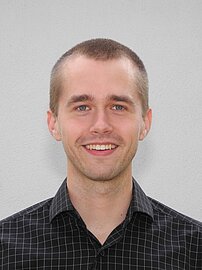Lecture "Computer Systems II"
Contents
- Introduction: Goals and Organisation of the Lecture
- Motivation, terms, sample applications
- Lab-Exercise Concept
- FPGA
- Components and functionality of FPGAs
- Differences between FPGA-Chips from different manufacturers
- SoC
- Characteristics, benefits, downsides
- Components of SoC-Kits (HW, SW, Toolchain, Support-Tools)
- Examples: Xilinx-XPS, SpartanMC-Kit
- CGRA
- Generic representation of CGRAs / distinction from FPGAs
- Mapping of SW to CGRAs
- Examples: ADRES, DRESC
- Dynamic Re-Configurable Systems
- Advantages of dynamic adaption
- Approach, Profiling, Limits
- Example: Warp / AMIDAR
Übungsplätze
Falls wir wegen aufgrund der Betreuungssituation, Raumsituation oder limitierten Anzahl an Versuchständen weniger Übungsplätze vergeben können,
als es Anmeldungen gibt werden wir nach folgenden Prioritäten Plätze vergeben:
- Studierende für die RS2 Pflicht ist (Vertiefung Datentechnik)
- Studierenden im Master (alle Studiengänge), die sonst länger studieren müssen
- Sonstige Studierende im Master
- Studierende im Bachelor
- Studierende, die schon mal teilgenommen haben
Organisation
| Typ: | Lecture (V2) |
| Kick-Off: | Thu, 24.04. 13:30 |
| Instructor: | Prof. Dr.-Ing. Christian Hochberger |
| CP: | see TUCaN |
| Cycle: | every summer semester |
| Language: | german |
Prerequisites:
- Lecture „Logic Design“
- Preferably Computer Systems I
Matierals
Materials can be found in Moodle
Lab-Exercise
The Lab-Exercise consists of two programming tasks. Good knowledge of C is required. It is strongly recommended to work on the lab tasks because their contents may be part of the oral exam.



